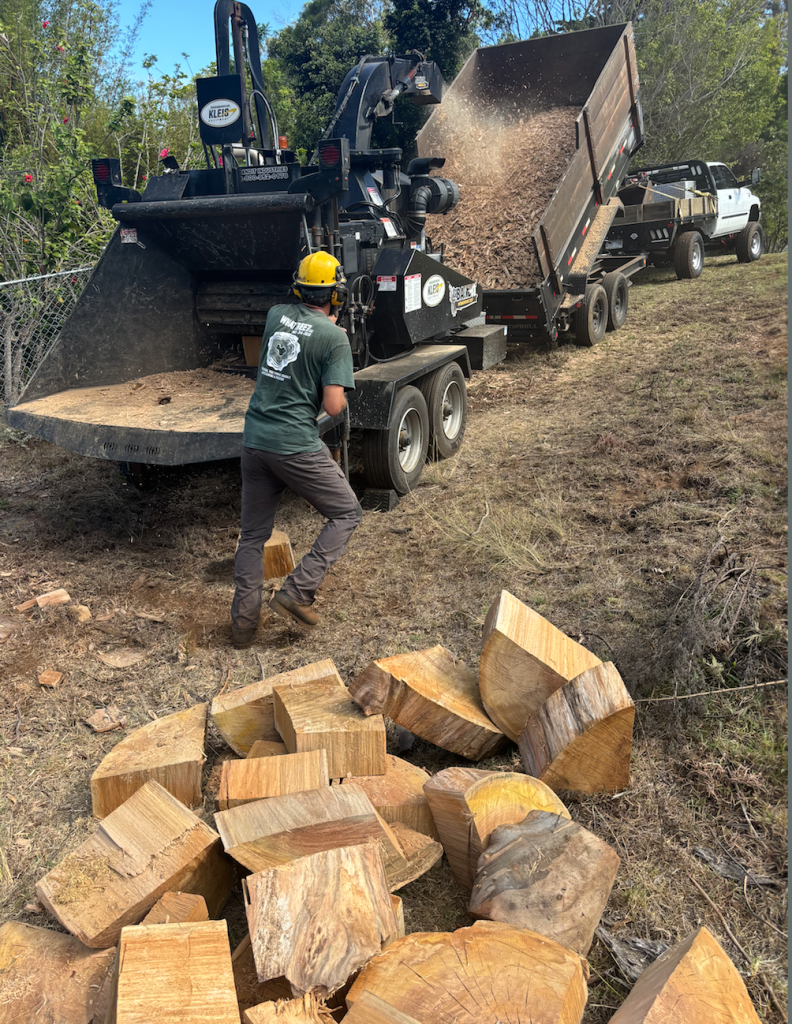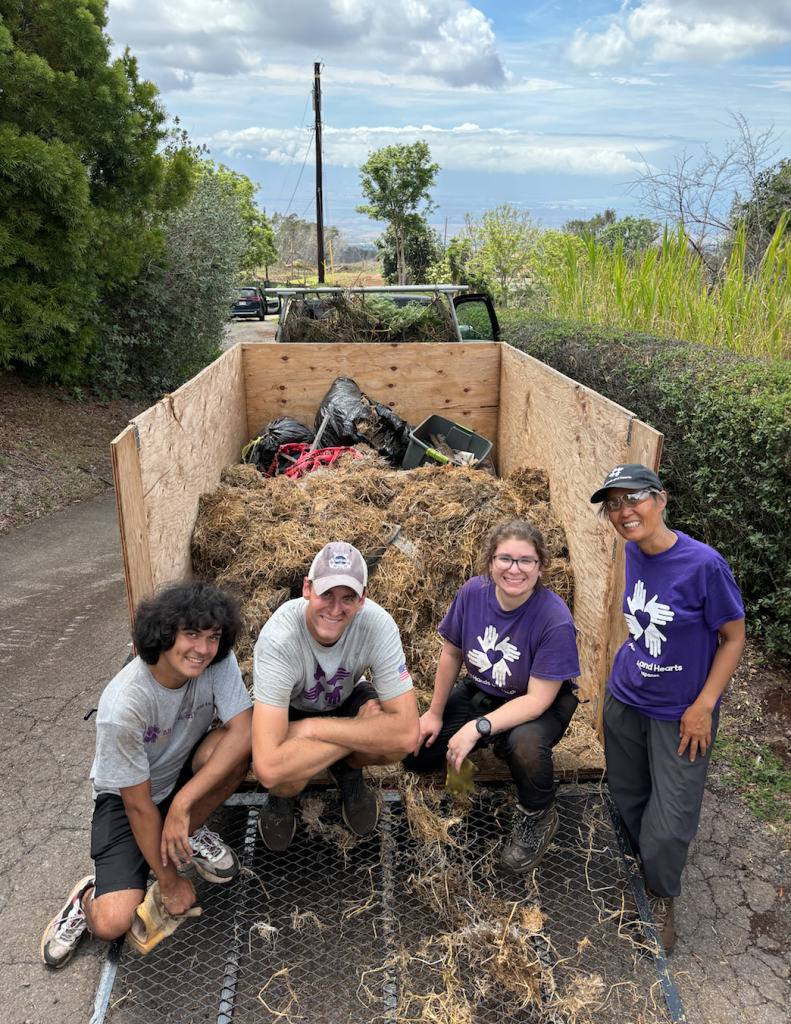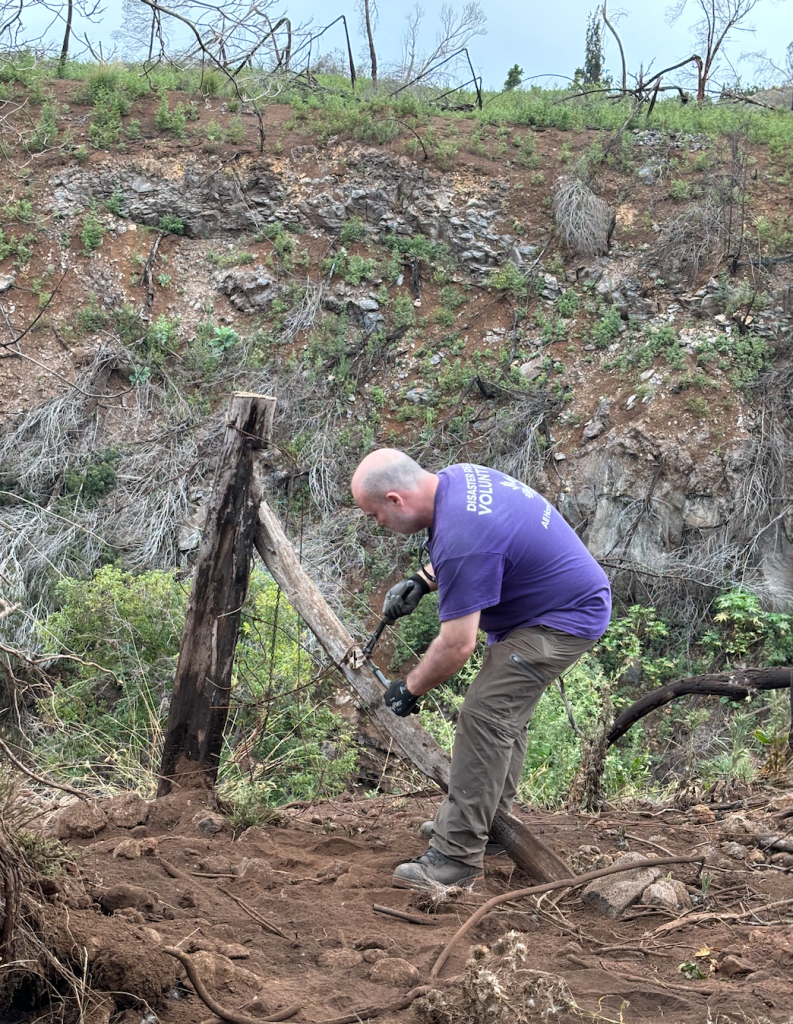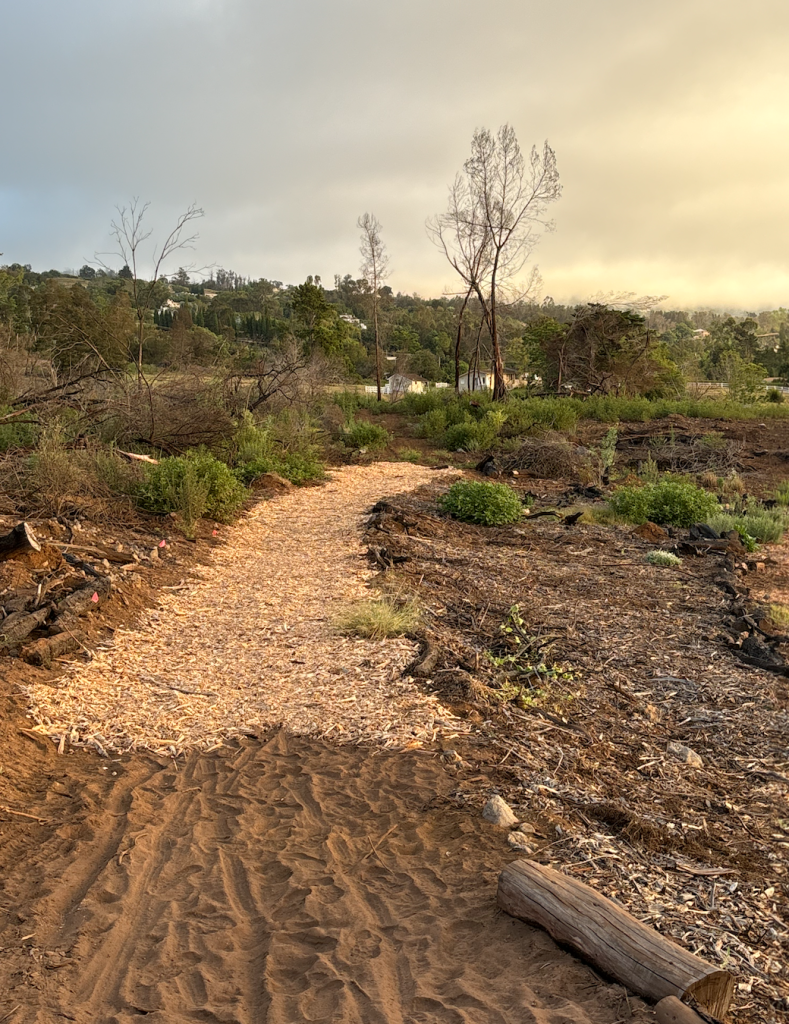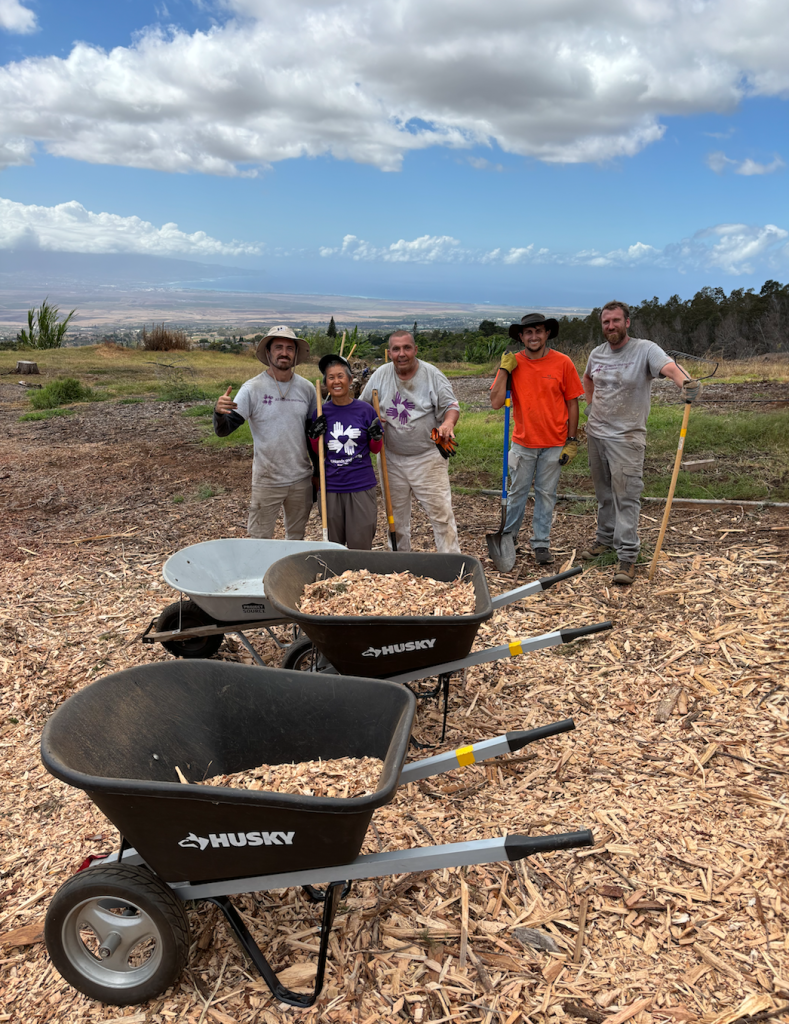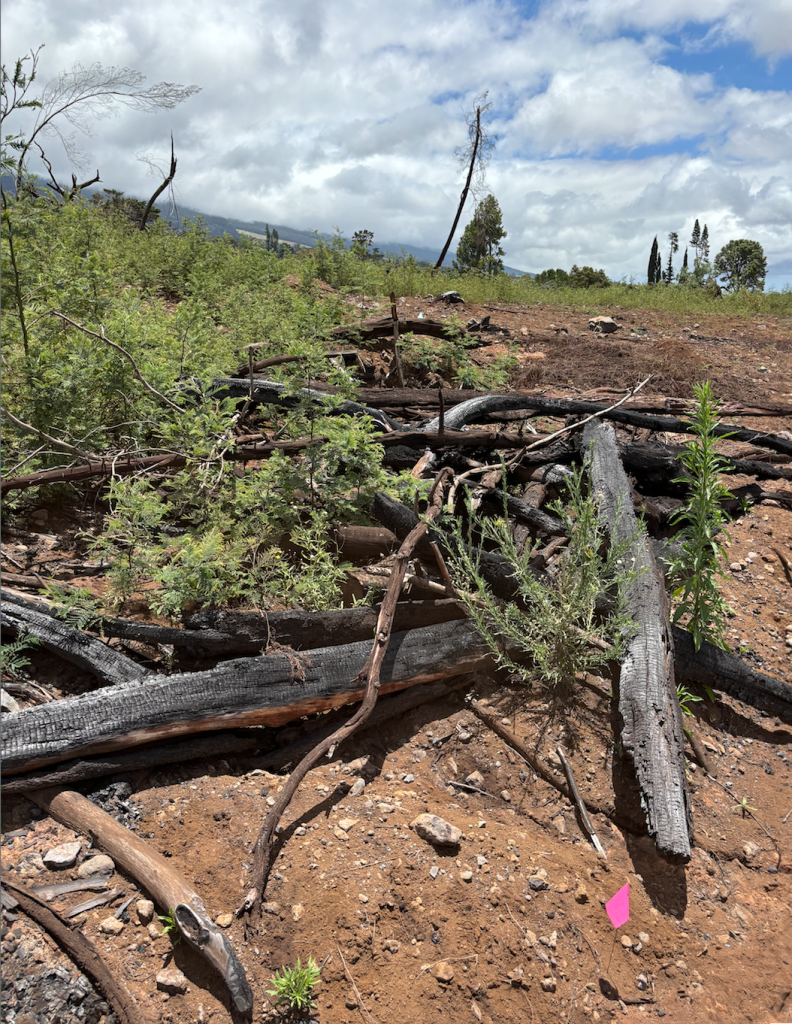Mālama Kula completes 30 straight community work days

In a testament to their unwavering commitment to help residents recover after the 2023 Kula fire, the grassroots nonprofit, Mālama Kula, completed their goal of 30 straight community work days during the month of August as their way of commemorating the one year anniversary of the fire that claimed 20 homes in Kula and scorched 202 acres of land.
The nonprofit, which helps serve as a conduit for matching volunteer groups with fire-affected residents who are still in need of help, mobilized more than 105 volunteers over the course of 30 work days. They collectively contributed more than 950 hours of labor toward helping fire-affected properties recover.
By working with individuals, local volunteers, as well as organizations such as All Hands and Hearts, Youth With A Mission, 808 Cares, and Daybreak Church from Kailua, O’ahu, Mālama Kula was able to coordinate work days on 17 different Kula properties over the course of the 30 day campaign.
Much of the work centered around scattering wood chips to stabilize burned soil. chainsawing and wood chipping to reduce hazardous fire fuels that continue to threaten the rural community, as well as removing invasive plant species that are overtaking burned properties.
The group also planted dozens of native tree species like koa, ‘ōhi’a, ‘ilima, and ‘ilie’e as well as non-native vetiver grass, which is used along hillsides to stabilizing soil and help minimize erosion and runoff.
Additionally, the group removed over 600 pounds of burned metal and debris that was still remaining in and around homesites after Phase 2 of US Army Corps debris removal efforts.
“USACE debris removal only covered the ash footprint of properties that were burned in the fire, and any debris outside of that footprint has been left for the community to clean up,” said Kyle Ellison, Executive Director of Mālama Kula.
“We’re really in a race against nature,” he said, “since a lot of the debris outside the house footprint is getting covered up by invasive plant species that are thriving in areas with burned soil.”
“By covering the burned soil in a layer of wood chips (which are created from trees that blew down or burned in the Aug. 8 Kula fire), it not only makes it harder for invasive species like Australian black wattle to grow back, but it helps minimize erosion and runoff, and provides habitat for grasses and ground cover to grow, which are lower-risk fire fuels than wattle.”
After the end of the August campaign, Mālama Kula has now hosted more than 2,600 volunteers who have collectively provided more than 23,000 hours of labor toward helping Kula recover. According to an April, 2024 report by the Nonprofit Leadership Center, the value of a volunteer hour is currently calculated at $33.49. Using those figures, Mālama Kula has been able to generate over $770,000 in volunteer labor, with 100% of the organization’s efforts being funded by private, community donations.
After the 12-month sprint, however, the organization is in need of funding to not only continue cleaning up from the fire, but also work toward hazard mitigation and continued efforts toward fire fuel reduction.
“Kula is living on borrowed time considering the volume of tinder dry fuel that’s still surrounding our community,” said Ellison.
“We had the Crater Road Fire in July of this year, and there have been multiple smaller fires since then that we’re very lucky didn’t grow any bigger. While programs that are months or years in the future are certainly important parts of this response, we also need to prioritize work that addresses these hazards today. We need to provide the community with tools and increased access to green waste facilities that can aid in responsible land management, and realize it’s incumbent upon our entire community to not just protect our own properties and ‘ohana, but our neighbors and community around us,” he said.
For more information on Mālama Kula, or to sign up to donate or volunteer, visit www.malamakula.org, or contact the organization directly at malamakula@gmail.com





